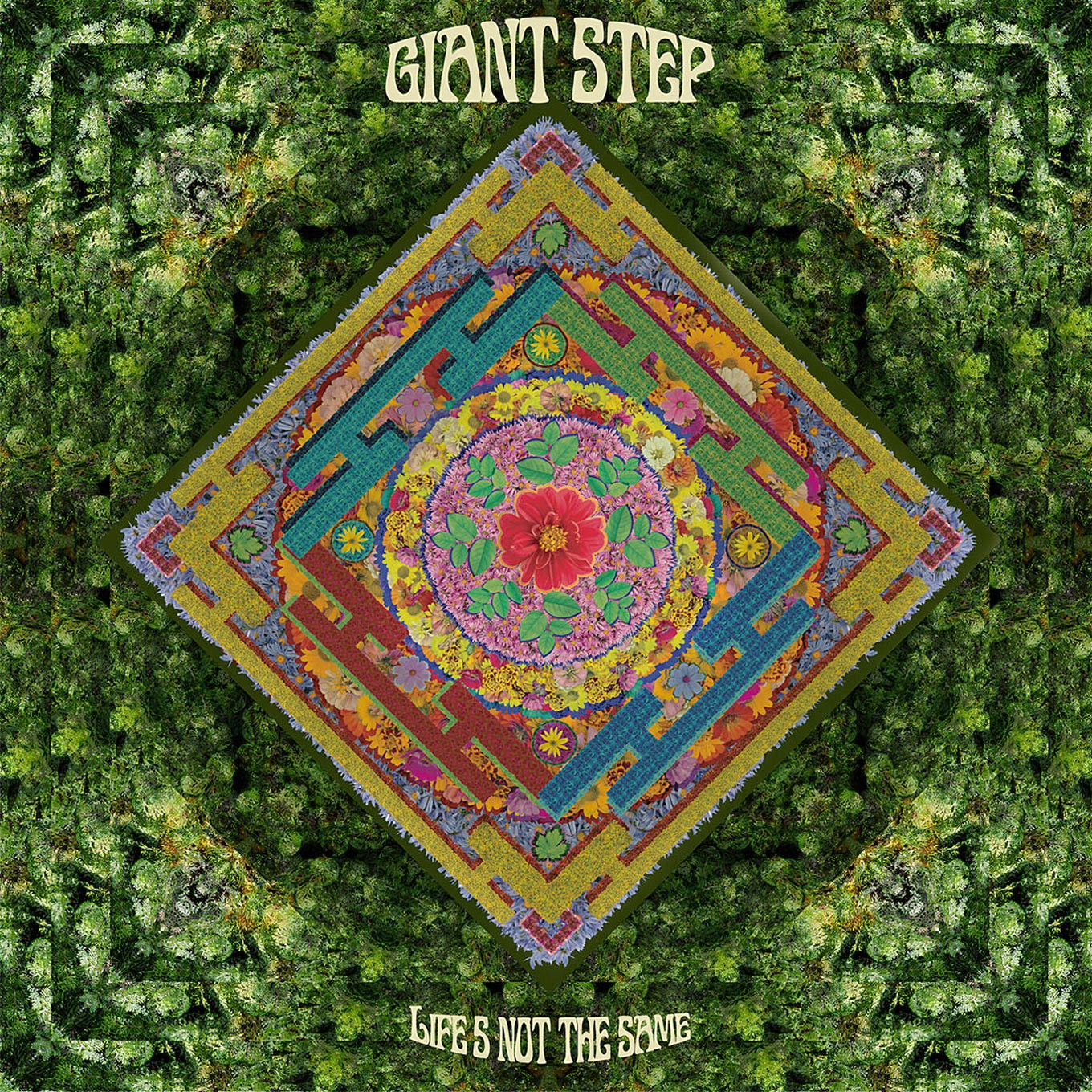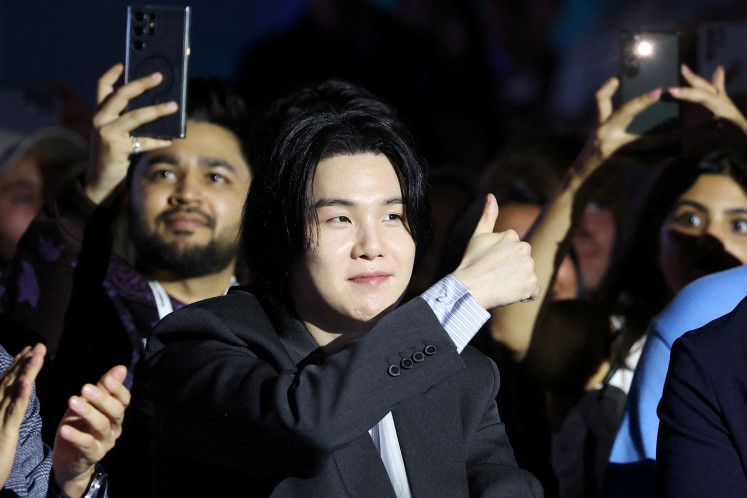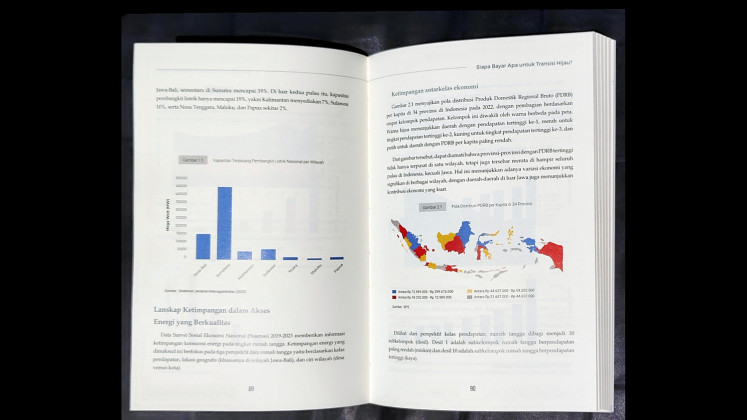Popular Reads
Top Results
Can't find what you're looking for?
View all search resultsPopular Reads
Top Results
Can't find what you're looking for?
View all search resultsAlbum review: Life's Not The Same by Giant Step
Giant Step’s first album in 32 years, Life’s Not The Same, is catchy psychedelic rock that sounds infectious in its earnest excitement.
Change text size
Gift Premium Articles
to Anyone
 Life’s Not The Same by Giant Step (Rockpod Records and Aural Records/File)
Life’s Not The Same by Giant Step (Rockpod Records and Aural Records/File)
I
t’s no exaggeration to call Giant Step a legend of Indonesian music and its front man Benny Soebardja an icon. But instead of resting on their deserved laurels, Benny and his band are eager to keep creating.
Giant Step’s first album in 32 years, Life’s Not The Same, is catchy psychedelic rock that sounds infectious in its earnest excitement. The record sounds pretty much like a 1970s psych-rock record you’d expect to see on the shelf “back in the day” and a natural follow-up to the 1985’s memorable Geregetan.
While retro-ism sometimes becomes a gimmick, the sense of throwback songwriting and arrangement of Life’s Not The Same is succinct and instantaneous in its melodic quality. The songs are technical, without ever forgetting the hooks.
For a musician that has been doing this for half a century, on Life’s Not The Same Benny never sounds like he’s phoning it in. No wonder he has released eight records with Giant Step, one with the similarly psychedelic Shark Move and four solo albums.
Perhaps it’s also the fact that there is new blood in his band. Giant Step, which has gone through a few permutations, is now Jordan on guitar, vocals and flute, Rhama Nalendra on drums, Debby Nasution on keyboard and Audi Adhikara on bass. The musicians show both technical prowess and a strong sense of consistency throughout, wrapping Benny’s songs with solid rhythms and melodic explorations.
The album — released through both Singapore’s Rockpod Records and United States label Aural Records on CD and vinyl — may only offer up seven tracks, but that economical approach works in its favor. Taking elements from both progressive and psychedelic rock, the record completely trims of any fat and the bloatedness that oftentimes comes with those genres.
Yes, the arrangement is conventional in the genre’s context, and yes, there is a good amount of instrumental breakdowns and guitar solos, but they always have this formula: first, lead somewhere, and second, be melodically/rhythmically memorable. Everything works to serve the song and to wrap itself around Benny’s vocal lines, shedding any moments where it feels like a musician wants to show you their “chops”. A glance at the track list shows that efficiency, with the songs mostly running around 3 minutes to 4 minutes.
Not that the musicians aren’t able. It’s obvious that Jordan, Rhama, Debby and Audy have the kind of skills that would make them strong session players. Twilight piano and keyboard lines run the gamut from dreamy-gorgeousness to neoclassical speed-runs, while the guitar provides textural chirps through a variety of effect pedals (echoes and tremolo are key sounds in this case) and menacing single notes and power chords.
Meanwhile, Audi’s fluid bass lays down groove almost constantly, enhancing Benny’s singing without ever taking center stage. The drums work with a progressive feel, solidly laying down beats that mutate constantly without losing their prowess. In fact, led by Benny’s high-pitched vocals, the whole album carries itself with the confident technical swagger of prog-rock titans Rush. For a proof of this, witness, the jammy last track, “Evil War”, which is where the musicians are finally let loose and take turns laying down solos.
But before that, the album opens with the ethereally theatrical “Lady With A Knife,” a mid-tempo arena rocker with dramatic flourishes, and “Humble Sorrow Man,” a slow-building rocker that goes from fantasy balladry into a high-rising rocker complete with time-signature changes and anti-politician hypocrisy. Meanwhile, “Flyaway” is filled with quasi-middle-eastern flourishes, self-referring to “giant steps” in its lyrics, riding off comfortably into jam band territory with its free-form-styled ending.
The title track sees another fantasy-ballad touch, with flutes, acoustic guitars and atmosphere-setting synthesizers. In its first minute, the song jumps onto a melodramatic rocker with funky guitar-and-rhythm section interplay and a staccato organ adding momentum.
It’s as strong as the moody “Thoughts”, the spacey, phaser-guitar-led track that sounds like it slowly rises from a calm start into a rumbling rocker with George Harrison’s sitar tendencies. The sole track with Indonesian lyrics, “Alam Semesta” (The Universe), is another ballad that turns into full-blown rock as it lurches forward.
Life’s Not The Same isn’t breaking any new ground, nor does it actually sound “special” in comparison to a lot of retro-rock records. But it has a consistency and a focus on songs that a lot of similar artists (especially local ones) lack. The songs ring with ease alongside their confident execution, making the whole album feel like a breeze to go through.









